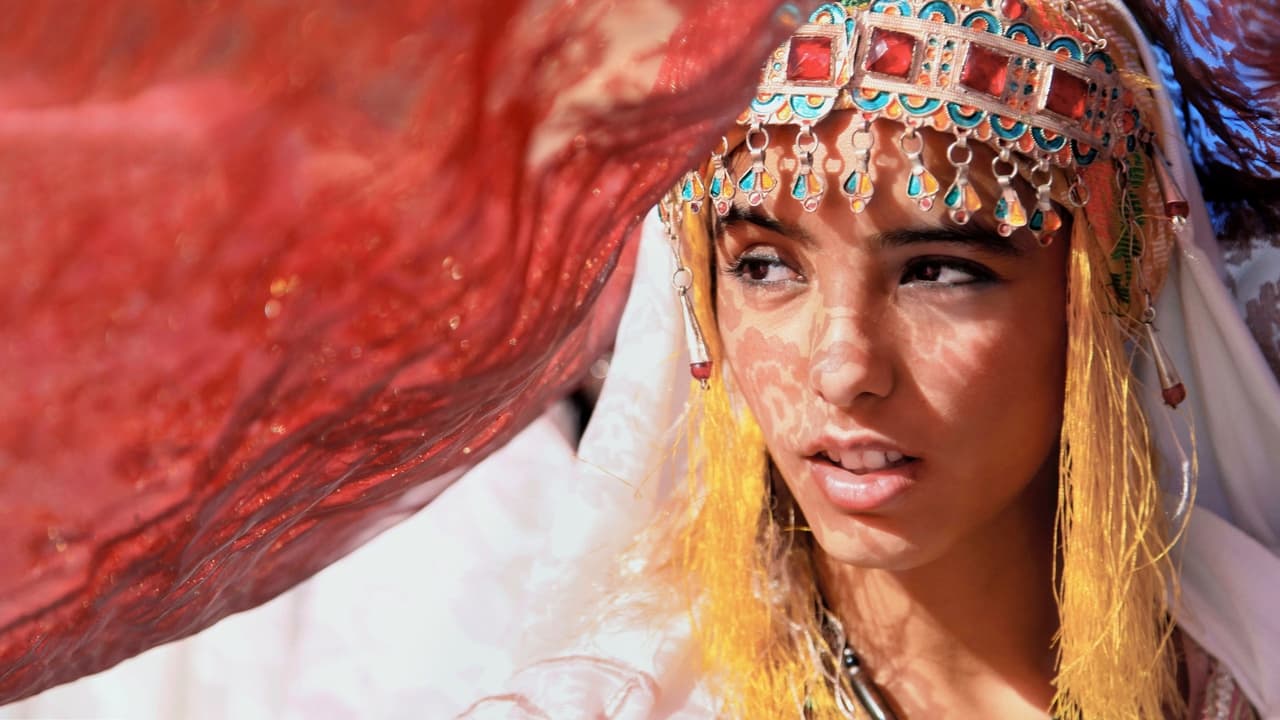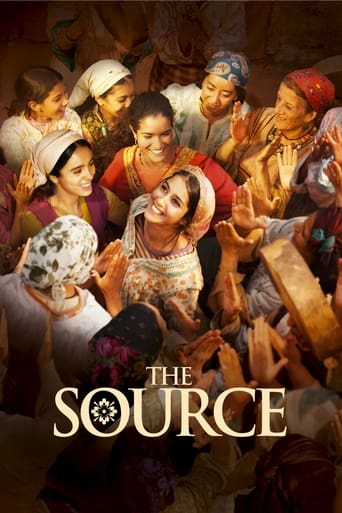ada
the leading man is my tpye
Perry Kate
Very very predictable, including the post credit scene !!!
Mjeteconer
Just perfect...
UnowPriceless
hyped garbage
freebirds-36525
Beautiful film screening, the actors' performances were genuine, real and beautiful.
the movie conveys a message that is going in the whole middle east and north africa, the reality that blends traditional ideas and connection, with the demand of democracy, equal rights and a rebellion on parts of this same tradition,
love, rebellion, attachment to the homeland, and the detachment at the same time, all was beautifully expressed in this story, in a funny, interacting way.
Recommended :)
dipesh parmar
The Source is a story set in a small village somewhere in North Africa, a battle not just between the sexes, but also of traditions. One of the many jobs the women have to do is collect water from a well on a hill. One day, a distressing accident to a young woman forces her friend Leila to finally take a stand against the men and traditional values.Leila (Leïla Bekhti) discusses the situation with all the women in the village, most are against the idea for fear of reprisals from their husbands. The village elder Mother Rifle (Biyouna) backs Leila's actions and enforces the one thing that will hurt the men more than anything, a 'sex strike'. The men, most of which do not work through lack of employment, grow more and more irritable as the strike gains momentum. The women certainly know how to rile the men, passively mocking them in different ways to get their attention. But not all the women share Leila's passion for change, not least her mother-in-law Fatima (Hiam Abbass). Leila's husband Sami (Saleh Bakri) is one of the few men that support the strike. Cracks begin to appear in everyones lives, with both sides using some quite unique methods for getting what they want.Water is used as a symbol for the general plight of the women, and director Radu Mihaileanu covers many themes such as rape within marriage, illiteracy, and the role of women in Islam. Mihaileanu tackles such bold issues not just with a seriousness but with plenty of humour. This balance between comedy and drama works really well, and what could otherwise be seen as sentimental and emotionally manipulative is dealt with real charm and sincerity. Mihaileanu crams a lot of issues into 2 hours of drama, some sub-plots working better than others.Song and music are used really well in some of the key scenes, and its worth paying attention to the songs as they seem to resonate more powerfully, perhaps such a medium is used with more importance in such cultures? I especially enjoyed the scene where tourists paid to go to the village, a regular occurrence to help fund the village, and the women sung and danced whilst the tourists sat and clapped. The men were in attendance and clapped along, but soon realised the women had changed the words to the traditional songs to subtly mock the men for their absurdities. Its one of many charming scenes in a thought-provoking and entertaining film, topically on-point considering the current political instability in much of the middle east countries, adding a different and perhaps more human complexion that we can all relate to.
Claudio Carvalho
In a remote and primitive patriarchal village between the North of Africa and the Middle East, the land has dried and the women traditionally brings water from a distant fountain to their houses while the idle husbands drink tea in the bar.The educated Leïla (Leila Bekhti), who is the wife of the local teacher Sami (Saleh Bakri), begins a sex strike movement among the women, supported by the elder Vieux Fusil (meaning old flintlock) (Biyouna), to force the men to bring water to the village. There is a strong reaction from the brutal men, but they resist until the brave women achieve their goal. "La Source des Femmes" is another brilliant film by Radu Mihaileanu about a group of women of courage that are capable to protest against the status quo of their village through sex strike.Like other films of this magnificent director, the story is a combination of drama and comedy in precise doses to make the viewer think, and exposes the situation of women not only in Muslin countries but also in poor worldwide areas where ignorance still prevails. The beauty of the actresses is impressive specially Leïla Bekhti and Hafsia Herzi. My vote is eight.Title (Brazil): "A Fonte das Mulheres" ("The Women's Fountain")
nathan-dessy
Finally, a movie dares to speak about the unspoken, about the reality behind the so-called "freedom of worship"; finally, someone has the guts to denounce the unbearable situation of women in those regions, or even in our regions because of the laxity of our democracies, ready to flout human rights in the name of a would-be tolerance! This cannot stand any more: voices have to raise, the tables have to be thumped, the headscarfs have to fall. Women aren't objects, and this movie reminds us of it well. It is time for them to get back their dignity, to take control of their lives, to become the equal of men. The movie succeeds to combine the seriousness of this situation with some touches of humor, bringing us back to the absurdity of men behaviour whose anxiety, frustration and lack of confidence in themselves led to the destruction of many women who just wanted to live.

